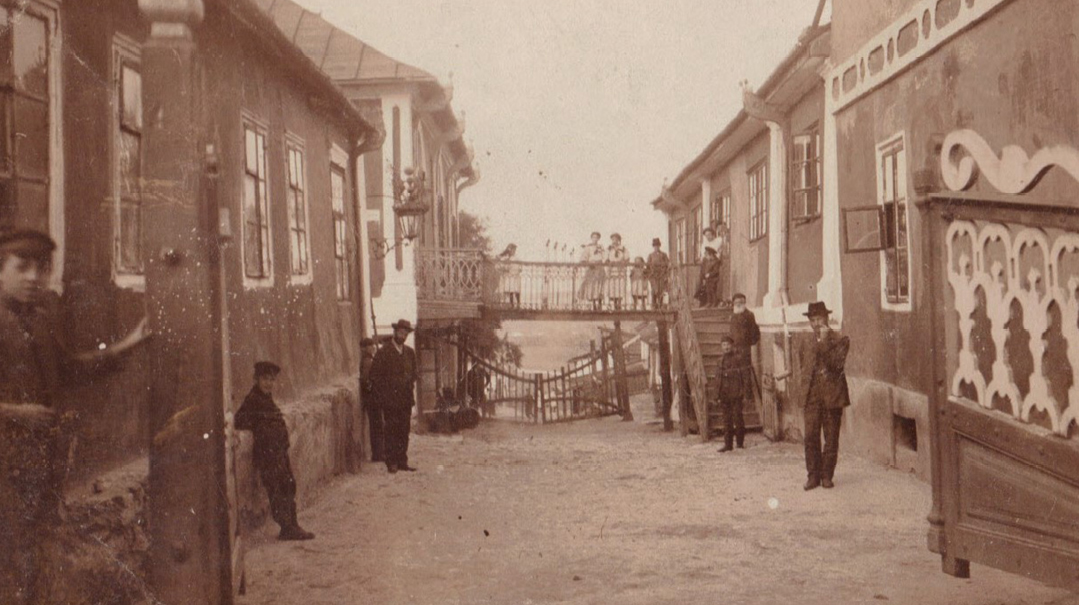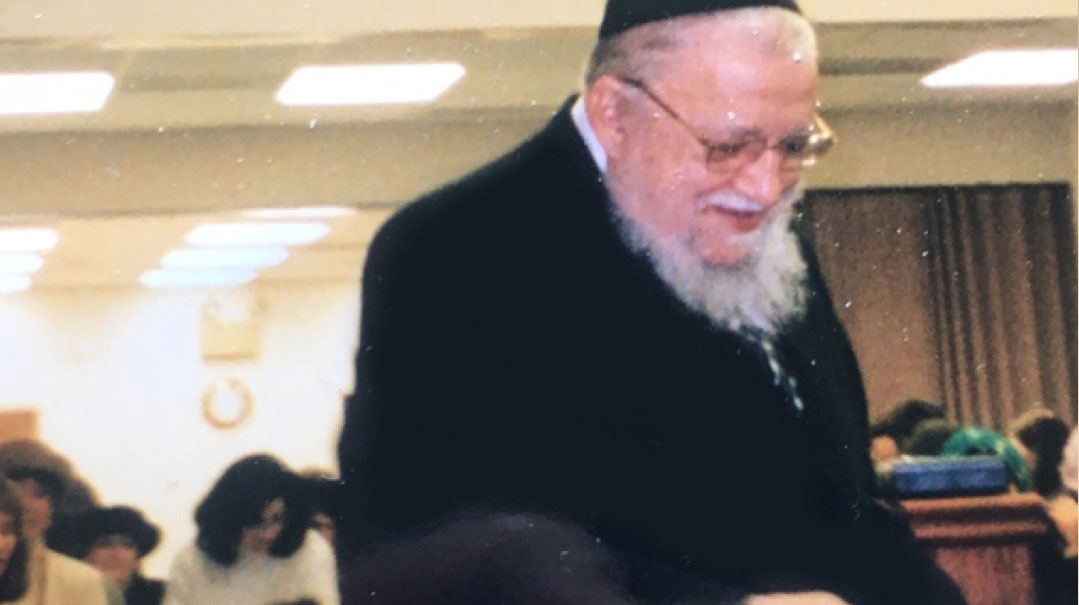The Gift of Silence
| July 4, 2023What words can possibly fix loss? We speak in these situations because we feel uncomfortable not to

Around a decade ago, I made a shivah call to a widow whose husband I had helped care for at the facility where I worked as a chaplain. I went with my friend, their neighbor, who is a brilliant and accomplished doctor. On our way into the shivah house, he paused and turned to me.
“What am I supposed to say?” he asked. “I never know what to say in situations like these.”
At the time, I found it odd that this man, who is well-known for his quick thinking and wit, and who in his professional career had surely been forced to deliver bad news, didn’t know how to articulate a comforting word to a grieving widow. Why is it that when we encounter people who have suffered tragic loss, we often struggle to find the right words?
Today, I think I understand.
Over the years, I’ve thought a lot about grief and studied countless books and papers about its stages, manifestations, and complications. However, nothing has taught me more about what it means to truly grieve than the loss my family incurred almost nine years ago.
My wife was expecting a baby. At the time, we had been blessed with one son and four daughters, and all of us, including the girls, were hoping for a boy. My wife and I don’t find out the baby’s gender in advance, but I do remember peeking at the ultrasounds and intuiting that this was going to be a boy.
The pregnancy was uneventful, and at each appointment, everything checked out. I remember every blood test, every ultrasound, every visit that I was able to be at my wife’s side, though my work commitments meant I couldn’t attend all of them.
It would take a long time to work through that afterward.
MY wife was 38 weeks along when she went to a routine appointment. I’ll never forget the abject panic in her voice when she called.
“The doctor couldn’t find a heartbeat!” she said frantically when I picked up the phone.
I felt raw fear tingling up my spine, but I just muttered an inane, “I’m sure it’s nothing,” before hanging up and dashing to meet her at the hospital.
In the OB ward, a doctor performed the final ultrasound. When she finished, she looked at us compassionately and uttered six words that are seared into my brain to this day: “I’m sorry, your baby has passed.”
It didn’t register at first. What could she mean? My baby? He hasn’t yet been born… how can he no longer be alive?
In shock, my wife responded simply, “No.”
That summed up my feelings, too. How could it be true?
It was too incongruous; we were in an OB ward where several of our other children had been born. This couldn’t be a place of loss and tragedy; it just didn’t fit.
“The next step is to deliver the baby,” the doctor gently explained.
I left the room to make some calls and arrangements for our other children. I passed the waiting room and saw a family we are close with — they were waiting in the OB ward for good news.
I froze.
They got up excitedly to greet me, and I blurted, “It’s not for a simchah.” I watched their faces fall as they realized what I was saying.
I won’t describe the labor and delivery other than to say that it seemed to be an exquisitely designed form of torture. You’ve experienced this before, but you’re achingly aware that this time it will end differently, not in one of the greatest of joys, but in devastating sadness.
This is a dissonance that is so powerful in grief, when life veers from its predictable path, when we come close to the mystery of death, when we experience a jarring confusion that leaves us shaken. It brings us into a new world where we now have a myriad of tragic possibilities. In my new world, full-term pregnancy doesn’t necessarily mean birth. Meeting your child for the first time can also be the last.
And this departure from the normal, predictable world we inhabited until now leaves us struggling with isolation. Even while others may know what we’re going through (as in our case), no one can fully, truly understand. We are surrounded by people and yet we feel alone, and regaining our footing in this new reality as we adjust to a life that will never be normal again.
People are well-meaning. Our friends and family attempted to bridge this gap by speaking of their own experiences, trying to connect by saying they understood. Maybe they did. That doesn’t matter, though. Because I didn’t.
When we truly want to comfort someone, we need to admit we don’t have the answers. We need to suppress that urgency to solve and even to soothe. We need to simply sit with them in that space of pervasive confusion, and go according to their pace, so when the time comes — and it may not be immediate — we need to help welcome them back to the “normal” world. We need to wait patiently to escort them back to life when they feel ready, standing by them step by step as they emerge from the confusion and reenter the new normal, blinking at the glaring chaos awaiting them. And by staying, just being, at their side, we tether them to the consistency of love and friendship.
Our baby was indeed a boy, and as we were advised that the minhag is to give a name you would not use for future children, we gave him the name Rachamim.
It resonated with me. Who hasn’t had to do something our children don’t understand, to hold a baby down while the doctor gives a shot? Think of the look on your child’s face, reflecting acute confusion and betrayal. If you love me, why are you causing me this pain? Who isn’t filled with rachamim, mercy, for this pain we have caused, even as we know it is for the best?
I picture Hashem looking at the confusion on our faces, mirroring our pain and tears, wishing we could understand. For now, the questions remain unanswered. But if we allow ourselves to feel the pain, to resist the urge to fix, to be with others in their bewilderment and hurt, then at least we can draw closer to each other.
I experience this as well; in both my personal and professional life, I’ve felt the urge to find the right words. I have also felt the impact of others feeling that urge.
We have to ask ourselves: Why am I so driven to say something? What am I trying to fix? Is this urgency about me, or about the other?
Part of the human experience is the attempt to assert control, to feel that we have the ability to stabilize our lives. Grief teaches us that this is impossible.
What words can possibly fix loss? We speak in these situations because we feel uncomfortable not to. We put ourselves and our need to fix before the bereaved’s needs — and by doing so, we leave them alone in their pain. We cannot cure our discomfort and sit with someone else’s at the same time.
The words that resonated the most with me in my grief were words of struggle, words of confusion: “I wish I knew what to say,” and, “I have no words.”
That was when I could finally give expression to how I really felt: “Me neither, my friend, me neither.”
Binyomin Yudin LISW-S is a lecturer and psychotherapist in private practice near his home in Cincinnati, Ohio.
(Originally featured in Mishpacha, Issue 968)
Oops! We could not locate your form.







